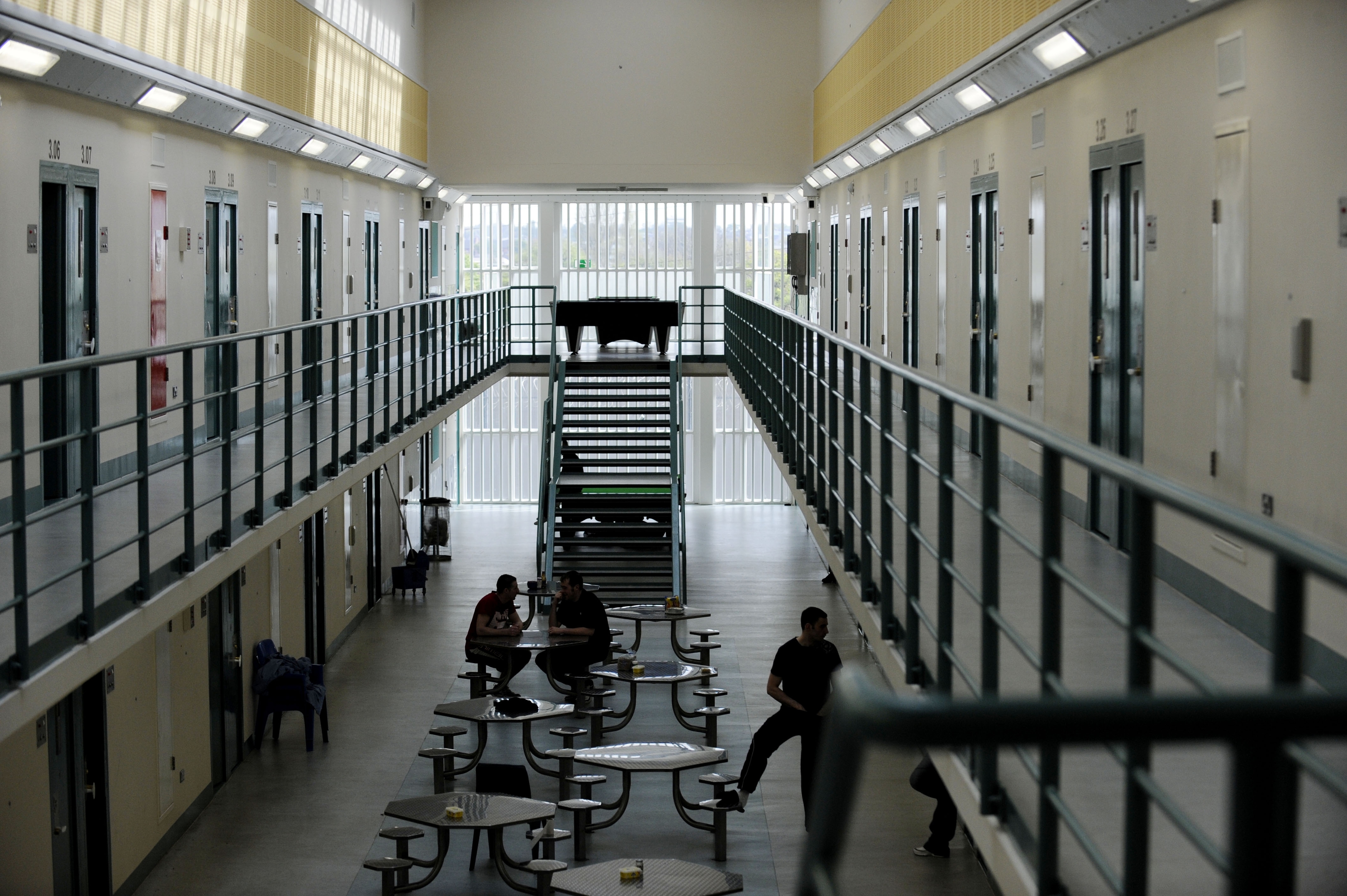
The chief inspector of prisons has said she is “very concerned” that the number of inmates in Scotland is starting to exceed capacity, placing extra pressure on the system.
The prison population rose by 709 in the year to the end of March, from 7,413 on April 1 2018 to 8,122 on March 31 2019.
Wendy Sinclair-Gieben, HM Chief Inspector of Prisons for Scotland, said this 9% increase is equivalent to one additional large prison.
In her report for 2018/19, she said planned investment in key infrastructure must not be delayed and she called for urgent action to replace HMPs Barlinnie, Greenock and Inverness, saying Victorian prisons are “costly and no longer fit-for-purpose”.
She said: “The additional number of prisoners and an increasingly complex population places a heavy burden on an already overstretched prison service in Scotland.
“I am very concerned that the number of prisoners is starting to exceed design capacity, resulting in not only additional pressures on staff, the prison regime and activities, but also on the essential programme and throughcare activities designed to reduce recidivism.”
Scotland’s incarceration rate is one of the highest in Europe while the number of prisoners on remand awaiting trial had risen from 1,142 last year (15.4% of the prison population) to 1,350 (16.6% of the prison population) by March 31 this year.
Problems relating to overcrowding include staff having less time to deal with individuals, two people sharing cells that have been designed for single occupancy, prisoners being located further away from home, and an “inevitable increase” in the waiting list for offender behaviour programmes.
The report found the “sharp rise” in prisoners is due to factors including longer sentences for the most serious of crimes, a rise in the number of people being convicted of sexual offences, and more serious and organised crime being successfully prosecuted.
Other factors include the reduction of prisoners being released on home detention curfew, very few prisoners subject to an order for lifelong restriction achieving parole, and a legislative change that halted automatic early release for people serving long-term sentences.
The report said these factors are likely to continue to place pressure on the size of the prison population for some time to come.
Ms Sinclair-Gieben said that while she welcomes the Scottish Government’s recent publication of an order to extend the presumption against short prison sentences from the current three months to 12, she remains concerned it “may not be enough to bring the prison population back in line with design capacity”.
The report also found the Scottish Prison Service (SPS) is currently facing “immense” financial pressures, with the SPS being obliged to purchase places, at “significant additional cost”, in the two privately run prisons in Scotland, HMP Addiewell and HMP Kilmarnock.
Her Majesty’s Inspectorate of Prisons for Scotland carried out four full prison inspections, two return visit inspections, five court custody unit (CCU) inspections and two thematic reviews over the year.
Inspectors noted problems with overcrowding and difficulties with access for people with mobility issues in some CCUs and suggested that some of the issues could be could be addressed through greater use of video-link courts.
An SPS spokeswoman said: “SPS welcomes the report and the chief inspector’s recognition that we can take pride in how our prisons are run.
“SPS also welcomes HMCIPS’s findings that staff and those in our care feel safe, and that they found the relationships and interactions between staff and prisoners to be positive and built on mutual respect, with the report highlighting the outstanding compassion and care from staff dealing with very vulnerable people.
“Access to opportunities for those on remand and on protection is an issue for the SPS across the prison estate. The challenges associated in safely managing a complex and increasing prison population can unfortunately impact on the range of activities and opportunities offered and available to all in our care.
“We continue to develop the regime for prisoners to maximise the range of purposeful activities available to them such as work, education and offender programmes to address their offending behaviour.”

Enjoy the convenience of having The Sunday Post delivered as a digital ePaper straight to your smartphone, tablet or computer.
Subscribe for only £5.49 a month and enjoy all the benefits of the printed paper as a digital replica.
Subscribe